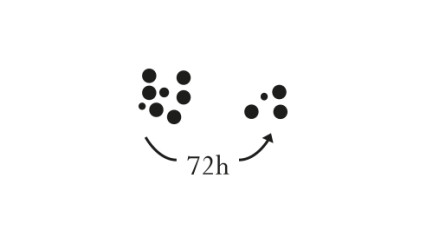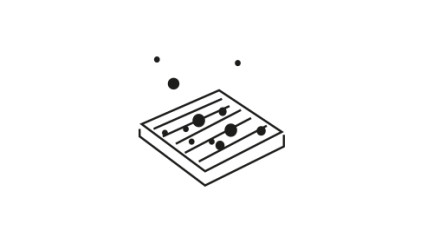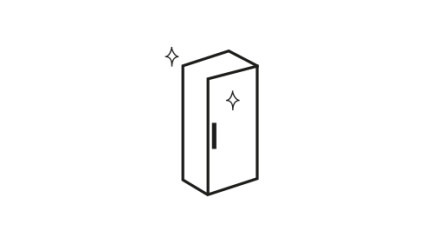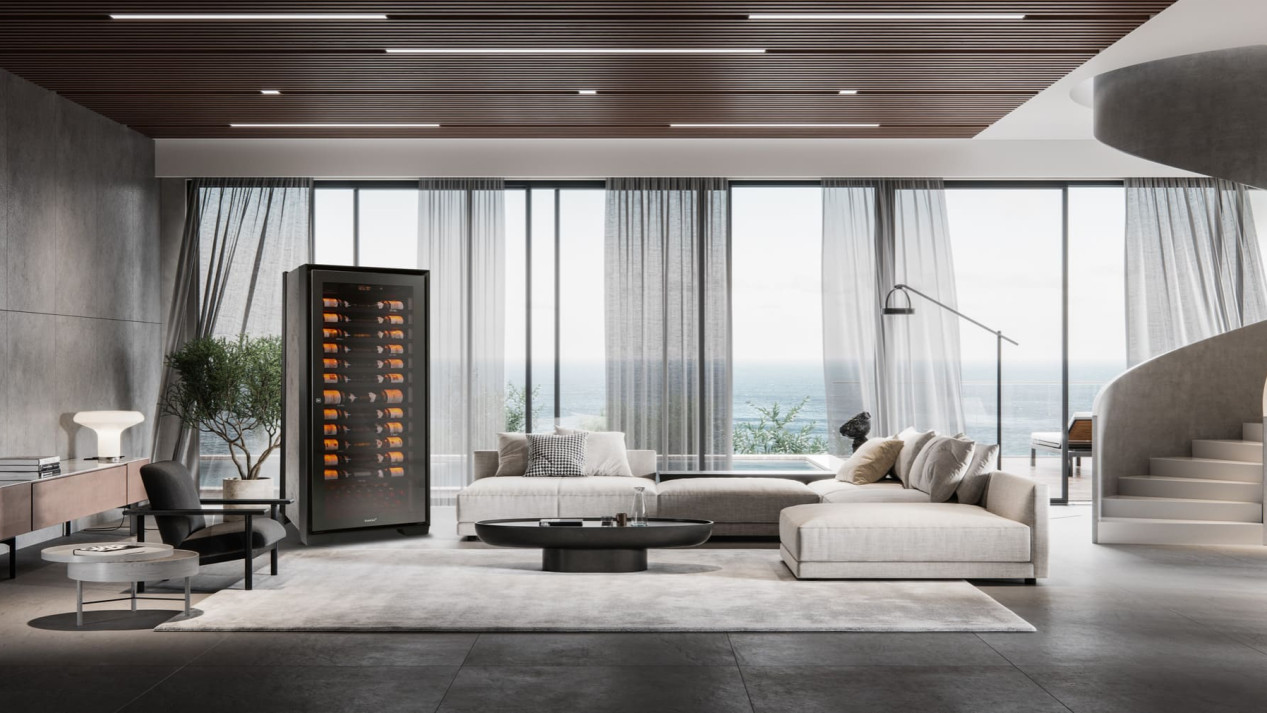
Caring for wine
Achieving optimal air quality inside a wine cabinet.
EuroCave has always been driven by a desire to excel in wine storage and service. Always innovating to improve product performance, EuroCave’s R&D teams collaborated with a group of researchers at an engineering school specialising in agronomy in order to analyse the rate of volatile organic compounds (VOCs) naturally present in wine cabinets.
Their objective: to find a solution that will further reduce VOCs in EuroCave wine cabinets.
The air inside a wine cabinet is naturally polluted.
Naturally present in the air, volatile organic compounds (VOCs) are also present inside wine cabinets. The air inside a cabinet is therefore naturally polluted by VOCs generated by multiple sources peculiar to the environment, materials in the cabinet and the bottles inside it (glue from the labels). These pollutants are a set of substances belonging to different chemical families which all evaporate, more or less rapidly, at an ambient temperature.
Harmful to wine.
Corks are not completely airtight and notably allow penetration of molecules (concept of nano infiltration), so VOCs seep into the bottle. VOCs also cause bad odours inside the cabinet. These two phenomena are extremely harmful to wine.
EuroCave’s design principle limits polluting materials.
For over 40 years, EuroCave’s design principle has sought to limit the use of all types of materials which are a source of harmful VOCs, such as plastic. All EuroCave cabinets are therefore equipped with an aluminium internal wall, which in addition to preventing any VOC emissions, ensures uniformity of temperature and humidity throughout the cabinet, which is not the case with plastic.
How can vocs inside wine cabinets be reduced further?
Although they already use materials that limit emissions of VOCs inside cabinets, EuroCave’s R&D teams wanted to find a solution that reduced them even further.
For over a year, EuroCave teams have been collaborating with a group of researchers from an engineering school specialising in agronomy. The rate of VOCs inside EuroCave wine cabinets was analysed and a solution – more effective that others currently on the market – was found. Different types of filter were tested in order to find the filter which was the most effective at further reducing VOCs naturally present in the air inside cabinets.
A highly effective filter design.

Odours and toxicity are reduced by half after 72 hours of use.

74% of VOCs are captured after 3 months of use.

The air inside the cabinet becomes cleaner than that of the room it is stored in.
Royale, the best wine cabinet in the world.
Today, this filter, more effective than any other filter on the market, is used in the Royale wine cabinet which brings together all the expertise that EuroCave has developed.
Today, EuroCave continues to strive to create ever more effective solutions and the investigations carried out by its R&D department continue.

1/ The family of volatile organic compounds (VOCs) includes several thousand compounds (hydrocarbons, solvents ...) with very varied characteristics. They have a direct impact on our health (some are toxic). VOCs are found in fuel and many everyday products: paints, inks, glues, stain removers, cosmetics, solvents... They are emitted when fuel is burned or by evaporation when manufactured, stored or used. The effects of VOCs vary greatly according to the nature of the pollutant. They can cause olfactory problems and irritation and can also have mutagenic and carcinogenic effects.
2/ Tests carried out on different filter surfaces, types and amount of adsorbents and endurance time (In chemistry, adsorption is a surface phenomenon in which atoms, ions and molecules adhere to a solid surface, called an adsorbent.)
